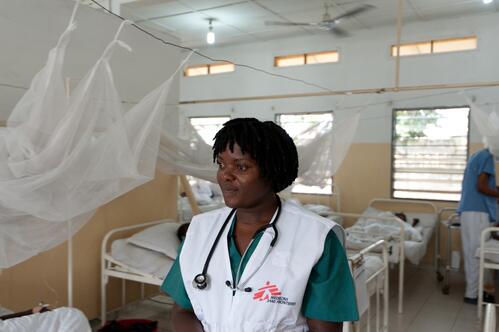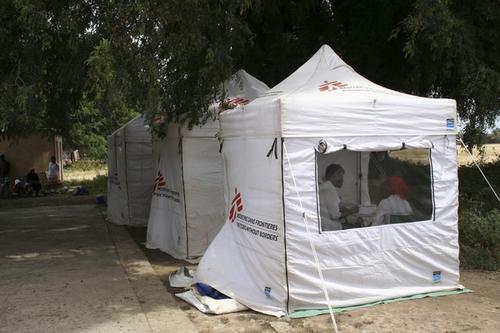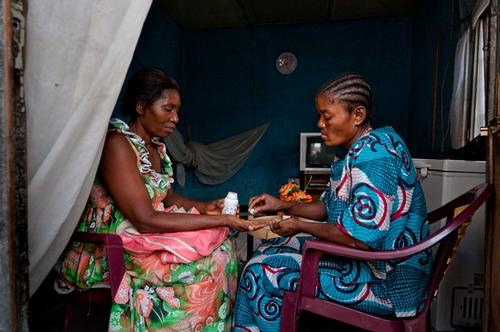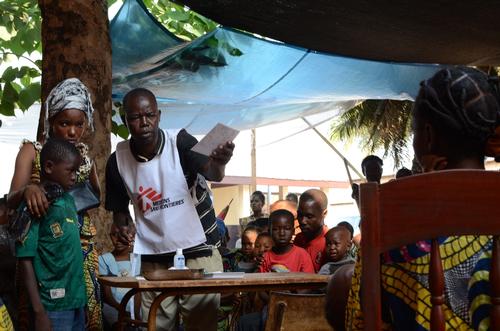An interview with Cecilia Ferreyra, HIV & tuberculosis referent, Médecins Sans Frontières (MSF)
What is the situation of people with HIV/AIDS in West and Central Africa?
At the end of 2011, only 34% of people needing antiretroviral treatment were receiving it in this area of Africa ; the lowest percentage of the entire continent. Bear in mind that in this region we see a much lower prevalence than in the countries further to the south. For example, in Lesotho or South Africa, 23.3% and 17.3% of adults are affected by the virus, while in South Sudan, the Central African Republic or Guinea, the prevalence is 3.1%, 4.6% and 1.4% respectively. But whereas in the first contexts we have made considerable progress in recent years, with a significant increase in patients with access to antiretroviral treatment, in the latter ones HIV/AIDS care services are erratic and almost non-existent.
In these countries, MSF again has to cope with high levels of stigmatisation and discrimination against people with HIV/AIDS (even by medical staff), a lack of access to diagnostic tests and treatment, patients arriving very late and very ill to the hospitals, very few programmes to prevent mother-to-child transmission of the virus, among many other things. A similar situation to what we experienced in the countries in the south of Africa two decades ago.
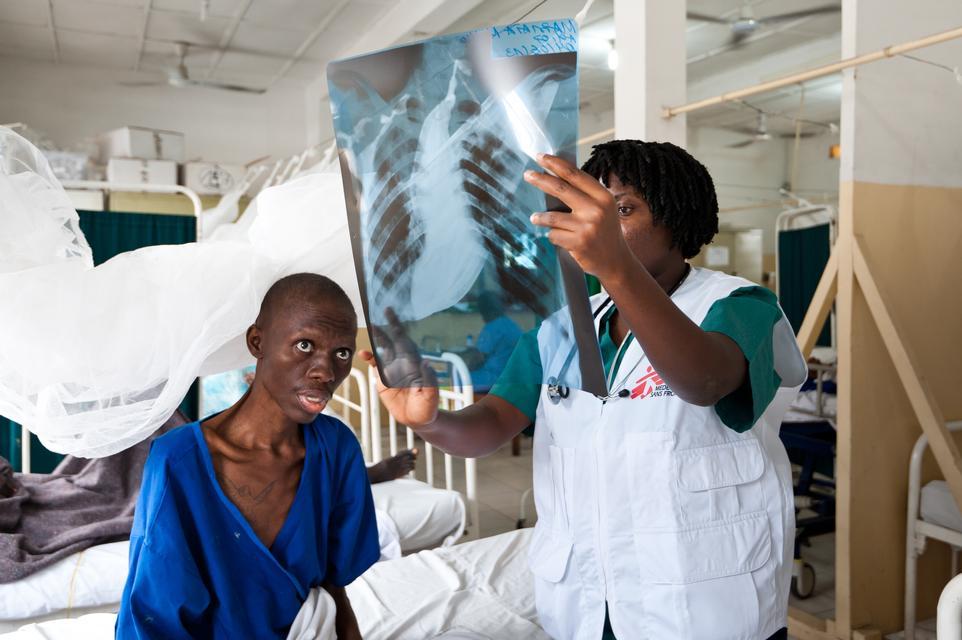
Why have these countries lagged behind in the fight against HIV?
There are several reasons. In many cases, they are countries affected by conflicts or political instability, with weak governments and weak health systems that do not have the political will or the necessary means to deal with this situation. Bear in mind that in these contexts, HIV is usually not one of their main health priorities. For example, governments decide to invest more in malaria, malnutrition, or maternal and infant mortality because they are more obvious causes of mortality than HIV.
Another key problem is the lack of financial support from the big international donors. Next week, a crucial meeting is being held in Washington to replenish the funds of the Global Fund to fight AIDS, Tuberculosis and Malaria, at which the international funders and donor countries should provide at least the 15 billion dollars that the Fund has set as a target to finance its work against these three diseases for the period 2014-2016. Without stronger funding, the situation of the people with HIV/AIDS in these contexts cannot improve.
Despite the difficulties, MSF has worked for years on AIDS projects in countries like the Central African Republic. What are the results?
Once again, we are demonstrating that you can also treat HIV/AIDS in this type of context and with good results. For example, in the Central African Republic, where we started to give antiretroviral treatment in two of our projects in 2008, more than 70% of the patients were continuing treatment at the end of 2012. The results are comparable to those obtained in more stable contexts, with clear benefits for communities and individuals in terms of access to treatment. But we still have much to do. In countries like the Central African Republic or the Democratic Republic of Congo the fight against AIDS has just begun.
Are HIV/AIDS projects different in these contexts?
Several of the models of care that we have used in high prevalence contexts are also useful in these countries; for example, the decentralisation of treatment, to bring it as close as possible to the person with HIV/AIDS, or that nurses and not doctors start to administer the antiretrovirals, which we call task shifting. Also, the involvement of the community, and this we have again confirmed in the latest peaks of violence in the Central African Republic, where over 90% of the people in treatment at the projects in Ndele, Kabo and Batangafo went to the health structures to collect their treatment for two months and so prevent possible interruptions in their medication.
On the other hand, we are forced to simplify the treatment protocols and adapt to the realities of the contexts in which we work. When in 2008 we started working in the Central African Republic we didn’t have CD4 machines (that let us know when to start antiretroviral treatment) and we started the treatment based on the clinical assessment of the patient. Most patients were already in stages 3 or 4, which is a very advanced stage of the disease. Moreover, in these contexts it is even more necessary to integrate HIV care within the other medical activities of the health centres, hospitals, etc.
For example, in the Central African Republic, where we started to give antiretroviral treatment in two of our projects in 2008, more than 70% of the patients were continuing treatment at the end of 2012.Cecilia Ferreyra, HIV & tuberculosis referent, Médecins Sans Frontières (MSF)



